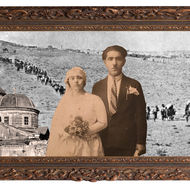
Varak Ketsemanian
Articles by Varak Ketsemanian
Thu Apr 22 2021
Where Do We Go Now? From an Existential to an Intellectual Crisis
The guest editor for the April issue on “Diaspora” writes about clarifying the steps needed to navigate these difficult times, and the imperative to take a step back and deconstruct the pedestal on which we have built our mutual and national expectations.
Thu Apr 22 2021
Յո՞ երթամք. գոյացականից անցում մտավոր ճգնաժամի
EVN Report ամսագրի ապրիլյան թողարկումը՝ «Սփիւռք» խորագրով, ազգային սպասումների անցյալի պատվանդանը վերակառուցելու ու նոր տեսլական ունենալու հրամայականի մասին է:
Sat Apr 25 2020
Երբ խոսում են ձայնազուրկները
Հոդվածում նախ նկարագրվում են վերապրված իրողությունները, ապա հարցադրումների միջոցով վերլուծվում է ընդհանուր պատումը, ինչպես օրինակ՝ «Որո՞նք են այն գործոնները, որոնք ձևավորել են ցեղասպանությունը վերապրածների ինքնագիտակցությունը», «Ինչպե՞ս են նրանք արձագանքում ցեղասպանությանը հաջորդած իրավիճակում իրենց գոյությանը» և այլն։





